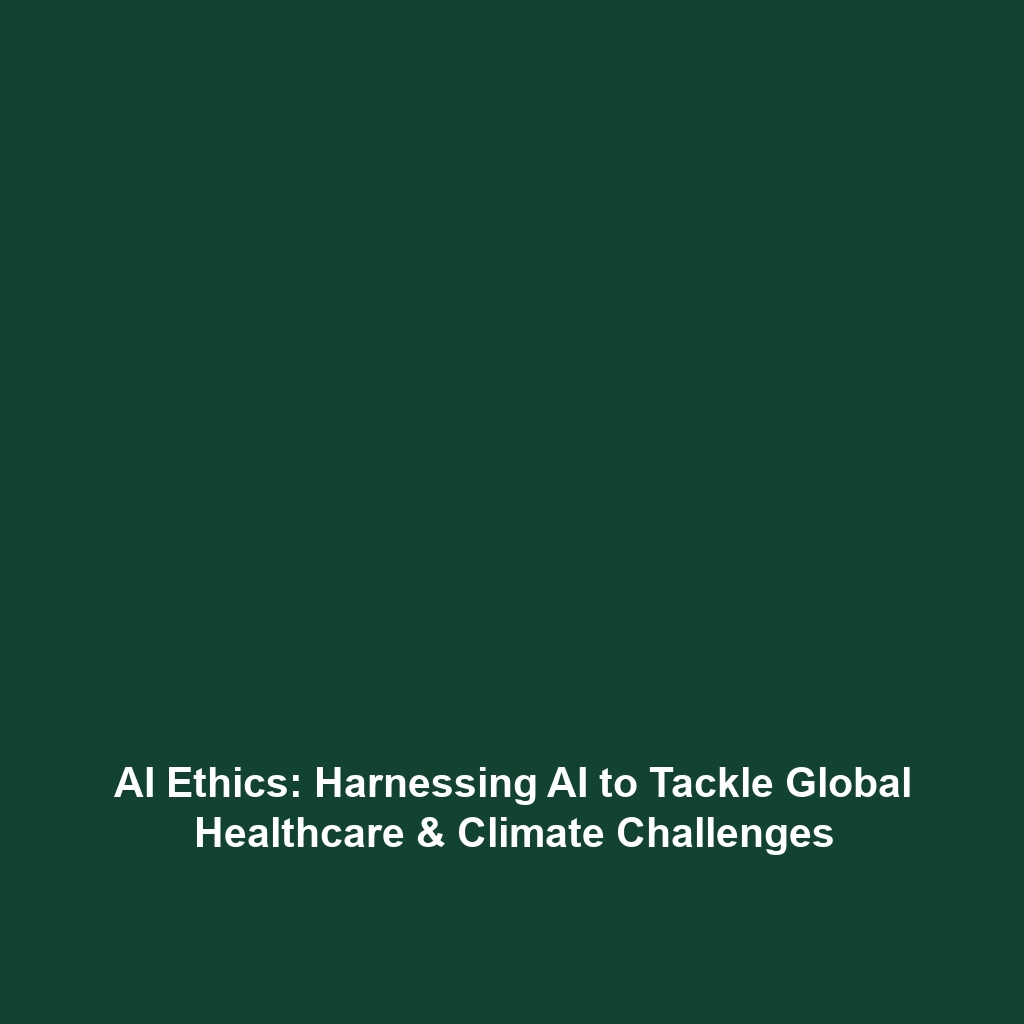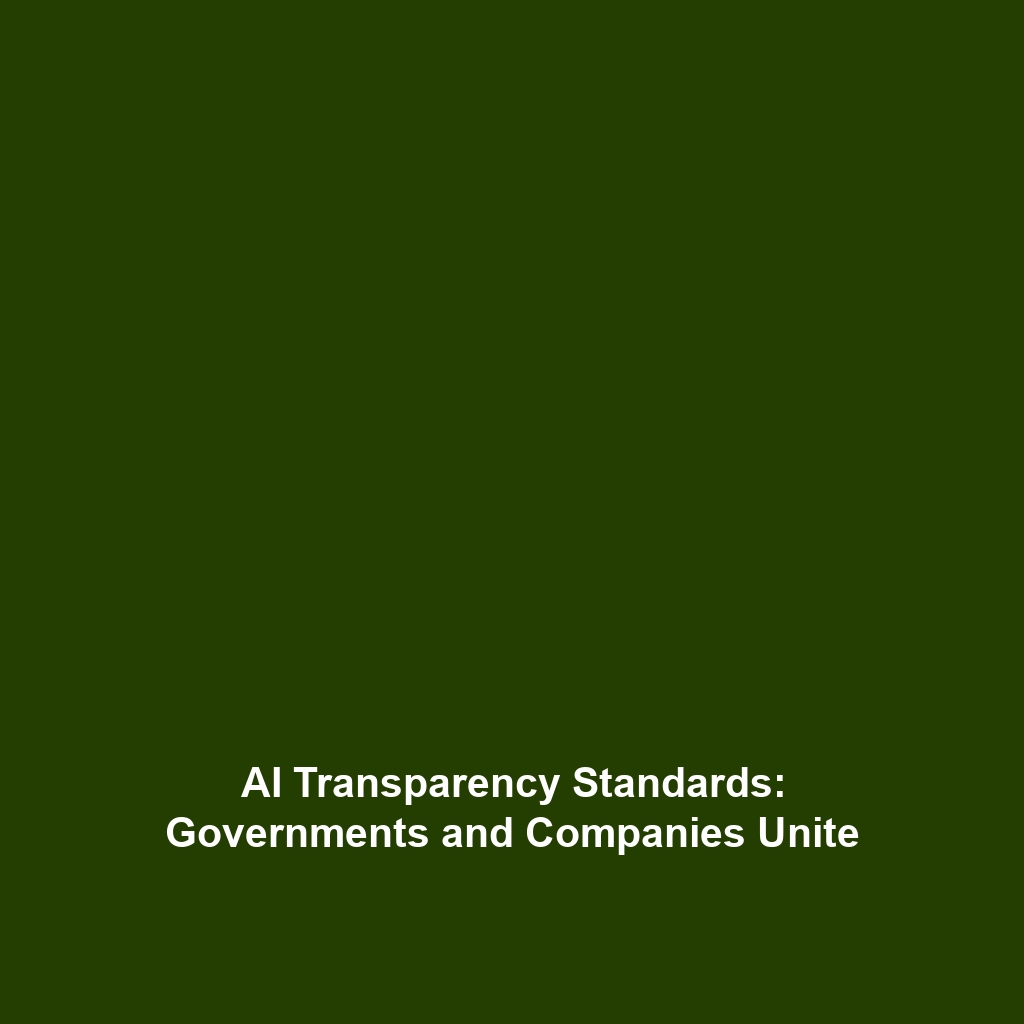The Potential for AI to Solve Global Challenges in Healthcare, Climate Change, and Education
Artificial Intelligence (AI) is increasingly recognized for its transformative potential across various sectors, particularly in addressing global challenges related to healthcare, climate change, and education. As we integrate AI technologies into these vital areas, we must also consider the ethical dimensions of their applications. The intersection of AI and ethics is crucial in ensuring that AI serves humanity positively and equitably while solving pressing issues.
Key Concepts
Understanding the role of AI in solving global challenges requires familiarity with several key concepts:
- AI Ethics: The study of ethical principles guiding the development and implementation of AI technologies.
- Machine Learning: A subset of AI that enables systems to learn from data and improve over time without explicit programming.
- Data Privacy: The importance of protecting individual data rights as AI systems analyze vast amounts of personal information.
- Bias and Fairness: The necessity of mitigating biases in AI algorithms to promote equity and fairness.
These concepts are pivotal in discussing AI’s potential in healthcare, climate change, and education, all of which require careful ethical considerations.
Applications and Real-World Uses
The applications of AI in these sectors are extensive and growing:
- Healthcare: AI technologies are revolutionizing diagnosis, treatment planning, and patient management by providing predictive insights. For instance, AI algorithms can analyze medical images with high accuracy, significantly enhancing diagnostic processes.
- Climate Change: AI is being utilized to model climate patterns, optimize energy consumption, and advance carbon capture technologies. Machine learning models support climate scientists in predicting environmental changes with greater accuracy.
- Education: AI-powered personalized learning platforms adapt to the unique needs of students, enhancing engagement and academic performance. Intelligent tutoring systems are increasingly being used to provide tailored educational experiences.
These practical uses exemplify how AI is employed in addressing pivotal global challenges while also raising essential ethical questions.
Current Challenges
Despite the promising applications of AI, several challenges need addressing:
- Data Bias: AI systems can perpetuate existing biases if the training data is not carefully curated.
- Transparency: Many AI algorithms operate as “black boxes,” making it difficult to understand how decisions are made.
- Security and Privacy Issues: Protecting sensitive data remains a significant concern in AI deployment, especially in healthcare.
- Accountability: Determining accountability in decision-making processes involving AI is still an evolving discussion in AI ethics.
Future Research and Innovations
Ongoing research is crucial for unlocking AI’s full potential to address global challenges. Emerging innovations include:
- Explainable AI: Advances in making AI systems more interpretable help enhance trust and understanding among users.
- AI in Pandemic Response: The role of AI in real-time data analysis during health crises is burgeoning, with potential applications in disease outbreak predictions.
- AI for Sustainable Development: Research is focusing on how AI can contribute to the United Nations Sustainable Development Goals (SDGs), particularly in eradicating poverty and promoting clean energy initiatives.
These breakthroughs will shape the future of AI development and its ethical implications.
Conclusion
The potential for AI to tackle pressing global challenges in healthcare, climate change, and education is immense. However, as we advance these technologies, it is essential to uphold ethical standards that prioritize fairness, transparency, and responsibility. The dialogue around AI ethics not only informs current practices but also paves the way for innovative and ethical AI-driven solutions in the future. For further reading, explore related topics in AI Ethics Overview and AI for Sustainability.

